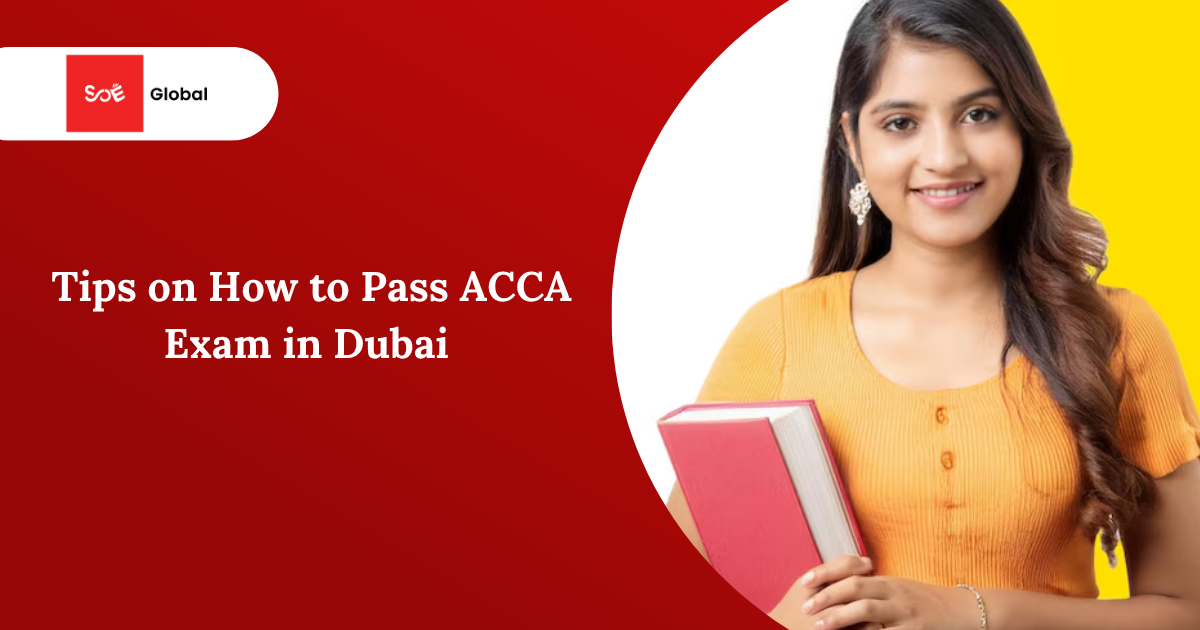ACCA Course Eligibility & Requirements
Ever dreamed of a career where you’re the master of numbers, wielding financial data to make strategic decisions? The Association of Chartered Certified Accountants (ACCA) qualification might be your perfect gateway. All about the ACCA course eligibility and its requirements are jotted down for you below!
What is ACCA?
ACCA is a globally recognized professional accounting qualification that equips you with the knowledge and skills to thrive in the dynamic world of finance. It’s ideal for both recent graduates and mid-career professionals seeking to:
- Launch a rewarding career in accounting and finance.
- Upskill and advance within their current role.
- Switch careers and enter the exciting realm of finance.
Have A Query About ACCA, Book a Free Consultation Now!
Why Pursue ACCA? Here’s a Glimpse of the Benefits:
Global Recognition: An ACCA qualification is respected by employers worldwide, in 180+ countries opening doors to a diverse range of job opportunities across industries and countries.
Enhanced Earning Potential: ACCA graduates typically command higher salaries compared to their non-accredited counterparts.
Career Versatility: The program equips you with a broad spectrum of accounting and finance skills, allowing you to explore various specialisations like auditing, taxation, or financial management.
Lifelong Learning: The ACCA program fosters a commitment to continuous professional development, ensuring you stay up-to-date with the evolving financial landscape.
Networking Opportunities: ACCA membership connects you to a global network of accounting professionals, providing valuable industry insights and potential career connections.
ACCA Eligibility:
ACCA serves individuals at various career stages. The ACCA course qualification is suitable for recent graduates entering the accountancy and finance sector, it is equally valuable for mid-career professionals looking to update their skills or change careers.Check out the ACCA course eligibility:
Minimum 10+2 (or equivalent): Minimum requirements are class 10+12 qualification and minimum age 17 years. There is no specific subject you should go for, but accounting basics can be helpful.
Good grades (bonus!): Even if the minimum grades are enough, aiming for higher scores can help you get scholarships.
Exemptions: Prior education and qualifications that provide experienced professionals with exemptions from certain tests.
- Holders of Business Degrees (BMS, BBA & BBM) receive 1 exemption in BT, MA, or FA.
- Commerce Degree holders (BCom, BAF, BBI) are eligible for 5 exemptions in BT, MA, FA, LW, and TX.
- This will allow them to accelerate their ACCA journey and focus on areas that need further development. TX and AA.
- Those who are approved by IPCC get 6 exemptions for BT, MA, FA, LW, TX and AA.
- Accountants with activated CA get 9 exemptions for BT, MA, FA, LW, PM, TX , for FR , AA and FM.
Note: The SOE Global website maintains a database where you can check for possible exemptions based on specific qualifications.
Commitment and a growth mindset:
While qualifications are important, the ACCA journey also requires commitment and a growth mindset. It requires commitment, persistence and a willingness to learn and adapt. Here are some more features that will come in handy for you.
Passion for numbers and business: If the thought of analysing financial statements and spreadsheets excites you, you are on the right track!
Problem solving skills: The ACCA course will get you thinking. critically and design solutions to complex accounting issues relevant to the Indian context.
Strong work ethic: Be prepared to make the necessary effort to study, practice and master Indian accounting standards and regulations.
Three Levels of the ACCA Course:
The ACCA qualification consists of 13 papers, the journey equips you with a comprehensive skill set for a successful career in finance. Here’s a quick breakdown of each paper you’ll encounter throughout the three stages:
- Applied Knowledge level: 3 papers
- Applied Skills level: 6 papers
- Strategic Professional level: 4 papers (2 essentials 2 optional)
Experience is essential: Practical Experience Requirement (PER)
The ACCA degree is not just about theory. To become a fully qualified member, you must complete three years of equivalent work experience in India under the supervision of a qualified accountant. This is known as a PER (Practical Experience Condition). Think of it as your internship in the vibrant world of accounting in India!
During this time, you will likely be required to perform various roles in areas such as financial reporting, auditing or taxation, all following Indian accounting standards. This hands-on experience will not only strengthen your understanding of accounting, but also help you find your niche in the Indian accounting and finance industry.
Lifelong Learning: The Power of Continuous Professional Development (CPD)
The world of accounting is constantly evolving and staying abreast of Indian regulations and best practices is key to success.The key This is where continuing professional development (CPD) comes into play. Imagine attending great accountancy workshops and conferences specifically focused on the Indian market.
Through CPD activities such as attending seminars, webinars or online courses offered by ACCA or Indian accountancy bodies, you can keep up to date with industry trends, regulations and best practices. This will not only help you maintain your professional reputation, it will also demonstrate your commitment to lifelong learning, which employers everywhere value
Conclusion: Your Path to Success at ACCA India
With a strong foundation, dedication and an ACCA degree, you will be. well equipped for Indian accounting and the exciting and dynamic world of finance for navigation. So take the first step towards your dream career – check the ACCA course eligibility criteria and start your ACCA journey today!
FAQ’s Related To ACCA Course Eligibility & Requirements
Who is eligible for ACCA?
Minimum 10+2 qualification with a minimum age of 17 years.
What are the exemptions based on prior qualifications?
Exemptions are available based on degrees like Business, Commerce, IPCC, and CA.
What skills are necessary for ACCA?
Passion for numbers, problem-solving skills, and a strong work ethic.
How many levels are there in ACCA?
Three levels: Applied Knowledge, Application Skill, and Strategic Professional.
What is PER in ACCA?
Practical Experience Requirement – three years of equivalent work experience.
Why is CPD important in ACCA?
To stay updated with industry trends and regulations for professional development.
How can I check for exemptions?
Check the SOE Global website database for specific qualifications.
What does ACCA focus on in the Indian context?
Learning Indian accounting practices and regulations.
What is the minimum age requirement for ACCA?
Age: 17 years old.
How can I start my ACCA journey?
Check eligibility criteria and enrol in the program.




